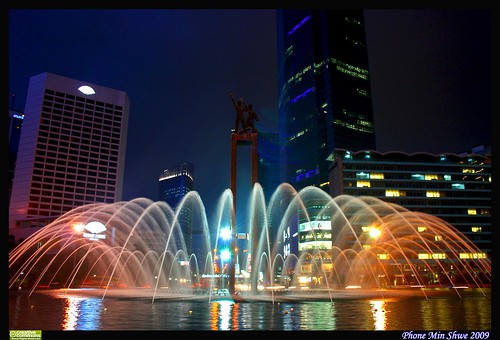If you want an introduction to the BRIC countries, the best source is from the bank that gave birth to this term in 2001, Goldman Sachs. The first few minutes of the video above will give a broad intro on the BRIC economies and how they are forecasted to overtake current giants such as the United States, Japan and Germany by the year 2050. This should not be surprising, because it has already happened. Since 2008, China has already overtaken Germany to be the world’s third largest economy. Here in Asia and particularly South-East Asia, we have been crazy about forging new links and new pacts with India and China due to the age-old cultural links that we already have. But, why is all this BRIC business relevant to investors with spare cash anyway?
Very important, in fact. If you visit any forum on stock markets in Singapore or elsewhere in Asia, you’ll be bombarded with punters who focus on buying and selling stocks at the micro-level. It’s common to hear comments saying that Wall Street has fallen yesterday, so everybody must sell today because Asian markets will follow suit. Also, during the start of the H1N1 Influenza-A virus outbreak, almost everybody remembered the SARS crisis and shouted “Sell now!” Such knee-jerk reactions focus on day-to-day events and leaves you with little time to strategize and focus on the really good stuffs to invest with your spare cash.
“… knee-jerk reactions focus on day-to-day events and leaves you with little time to strategize and focus …”
As CashBench has advised last week, invest, don’t speculate. You are much more likely to gain a sustainable return with a longer-term outlook than buying and selling every few days or every few months. The BRIC economies are almost certain to grow over the longer-term, can you afford to not invest in them?
“Even more important, have we been neglecting out-performers in our own backyard?”
Even more important, have we been neglecting out-performers in our own backyard? The photo above is not a renovated Fountain of Wealth at Suntec City in Singapore but a night scene in Jakarta, Indonesia. This could very well have been a scene from Australia or the United States. Over the last decade, Indonesia has quietly recovered from the loss of power by Mr. Soeharto to become an economy to be actively monitored over the next few decades. It is already the largest economy in South East Asia and all it really lacks in the past was the political will to make better use of its vast natural resources and a population of 200 million. All that has quietly changed.
While the headlines are filled with how China can afford to spend trillions on stimulus measures to keep it’s economy growing, only those who are sharp enough will notice that Indonesia is one of a very few select economies that is forecasted to grow even in 2009. Those countries that can do so signals that they have a large domestic economy that is much less dependent on selling cheap products to the west. These are the economies that we should invest in, and not constantly worry about how they will perform tomorrow or next week. If we live long enough, it’s highly likely that we will get a decent return from investing in these countries, and there’s no need to speculate at all.
“… Indonesia is one of a very few select economies that is forecasted to grow even in 2009.”
Where is the supporting evidence, you say? Try this. Indonesia is a great country with many plus points, but how about thinking what you may dislike about Indonesia in the past, or maybe even now? Are you ever worried about corruption and bribery when you do business or travel there? If yes, then you’ll also have noticed that Indonesia is no longer a country where the corrupt stays unpunished. Just last week, a relative of the Indonesian president was sent to jail for 4 1/2 years for corruption. This would not have happened just 10 years ago. And this is not the first too. Last year, another bank governor was sentenced to 5 years jail for the same corruption case. Given that the current president, Mr Susilo Bambang Yudhoyono, is likely to be re-elected, his anti-corruption policies and economy-boosting measures are likely to continue as well. Even if he is not re-elected, the other 2 presidential candidates have also promised to continue to tackle corruption in the country. Indonesia is a gem in our backyard that we cannot ignore.
The Economist forecasts that Indonesia will grow 2.4% this year while Morgan Stanley has concluded in a report that Indonesia should really be included within the BRIC grouping. So, how about BRIIC instead of BRIC?

Your comments?
Post a Comment